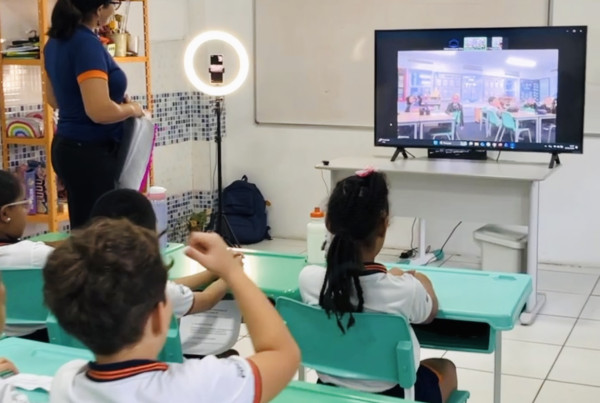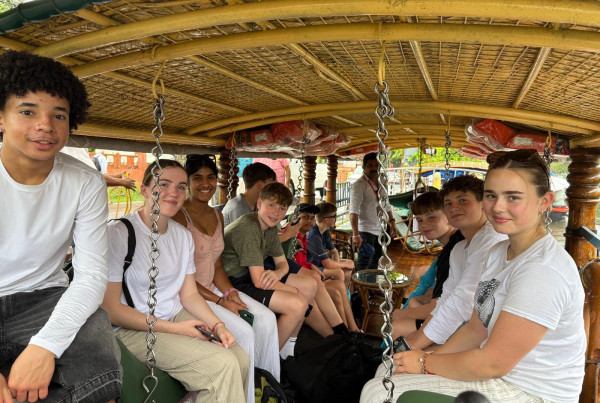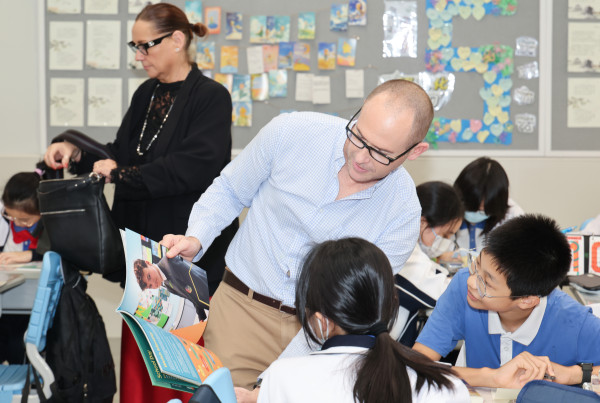If you’re a teacher, educational leader or even parent, the chances are you’ll be familiar with the term ‘cultural capital’.
Once a phrase used primarily in the realms of sociology, cultural capital now forms part of the new Ofsted framework, released in September 2019.
The requirement for educational settings to provide learners with “the knowledge and cultural capital they need to succeed in life” has had many leaders asking questions and deciphering what steps they should take next.
This guide to cultural capital aims to define what exactly cultural capital is and how schools can implement it into their curriculum.
If you are struggling to implement these elements, download our Cultural Capital Action Plan.
Defining Bourdieu’s ‘Cultural Capital’
To understand Ofsted’s intention behind the use of ‘cultural capital’, we must first go back to what the phrase’s original meaning and use.
Cultural capital in sociology comprises an individual’s social assets (education, intellect, style of speech, dress, etc.) that “promote social mobility within a stratified society“.
Download free Cultural Capital Action Plan
The term was coined by 1970s French sociologist Pierre Bourdieu, who developed the idea as a way to explain how power in society was transferred and social classes maintained. Bourdieu believed that cultural capital formed the foundation of social life and dictated one’s position within the social order. For Bourdieu and Marx both, the more capital one has, the more powerful a position one occupies in social life.
However, Bourdieu extended Marx’s idea of capital beyond the economic and into the more symbolic realm of culture. He broke it down into three distinct types: embodied cultural capital, objectified capital and institutional cultural capital. He emphasised that cultural capital is intrinsically linked to economic and social capital, in that access to economic and social capital allows greater access to cultural capital.
Therefore, the cultural capital definition could be explained as an indicator of how well an individual is able to succeed academically and engage in wider society.
Cultural Capital & Ofsted
In September 2019, educational watchdog Ofsted created a new inspection framework that requires schools to develop their students’ cultural capital.
Specific notes within the framework reflect on ‘Personal Development’ and how children are to learn skills and realise talents, develop character and resilience, and learn about British values, diversity and mental health & well-being, all of which are encouraging.
What is Cultural Capital in Education?
Cultural capital, when used in relation to education, promotes the idea that schools should support the modern definition of what ‘cultural capital’ means. That is an individual who is knowledgeable about a wide range of culture, is comfortable discussing its value and merits, and has been given a vast array of experiences and access to skill development.
Bourdieu identified three sources of cultural capital – objective, embodied and institutionalised. In education, this could look like:
Objective: cultural goods, books, works of art;
Embodied: language, mannerisms, preferences;
Institutionalised: qualifications, education credentials.
Therefore, cultural capital in education could potentially be realised through all aspects of the curriculum – exposing students to a large variety of subject areas and arts; promoting character-building qualities that lead to creating well-rounded, global citizens, and of course the more typical expectations of education, which is to provide young people with recognised and meaningful qualifications that will open up doors to paths in later life.

Despite some criticisms over how Ofsted will, in practise, inspect each school’s ‘cultural capital’ teaching, many experts believe that this is a positive move forward. If nothing else it suggests that Ofsted are looking not just at one aspect of a curriculum, measured in terms of exam grades, but are taking on a more holistic view of education that encompasses many angles.
Following the feedback and requests for elaboration from teachers, Ofsted has since itself clarified that: “Inspectors aren’t inspecting ‘cultural capital’; they’re looking at whether the school provides a rich and broad curriculum. A great curriculum builds cultural capital.”
This suggests, therefore, that leaders need only focus on the quality and variety of their school’s curriculum, if they hope to equip their students with the ‘cultural capital’ Ofsted is referencing.
In the Schools Inspection handbook, it is outlined:
“As part of making the judgement about quality of education, inspectors will consider the extent to which schools are equipping pupils with the knowledge and cultural capital they need to succeed in life. Ofsted’s understanding of this knowledge and cultural capital matches the understanding set out in the aims of the national curriculum. It is the essential knowledge that pupils need to be educated citizens, introducing them to the best that has been thought and said, and helping to engender an appreciation of human creativity and achievement.”
Helen Moylett, independent early years consultant and writer for Early Education, comments that: “It is interesting that the term [cultural capital] always is always bracketed with “knowledge”. That may be because, despite Ofsted’s claim to be using a definition found in the national curriculum, the national curriculum (NC) does not refer explicitly to cultural capital. The relevant aim of the NC (as quoted directly in the schools inspection handbook above) is:
The national curriculum provides pupils with an introduction to the essential knowledge they need to be educated citizens. It introduces pupils to the best that has been thought and said, and helps engender an appreciation of human creativity and achievement.
“So it seems that Ofsted have added to the NC aims by deciding that “the best that has been thought and said” plus “an appreciation of human creativity and achievement” equals cultural capital.”
What does Cultural Capital mean for schools?
Dr. Tony Breslin, independent researcher and policy analyst, claims that the curriculum has been conspicuously absent from several previous iterations of the Ofsted framework, and curriculum’s return has rightly grabbed the headlines in the ensuing discussions.
“Too often, at least in policy discourses, the curriculum is considered to be little more than a list of subjects,” he says.
“I prefer the definition that Barry Dufour introduced me to at the University of Leicester over 30 years ago: curriculum is the total learned experience of the child: formal, informal, within the classroom and beyond.“
On that note, he goes on to reference three overarching themes that schools and leaders need to think about if they are to ensure their curriculum delivers cultural capital.

1. ‘Relearn’ the deeper language of curriculum
Schools need to relearn the deeper language and substance of curriculum, and to rebuild a culture in which curriculum-literacy is core to our theory, discussion and practice.
Schools and teachers can do this by asking the following questions:
- Why do we teach what we do?
- Does it enable our pupils to progress to the destinations that meet their interests and aspirations?
- How do our pupils experience this curriculum?
- What’s it like to be a pupil in our school?
2. Prioritise the experience of the learner as key
The experience of the learner is key to the new framework, as it ought to be for any educator. Breslin says don’t expect the inspectorate to simply pore over a school’s written policies; instead, expect them to engage in extensive conversations with students, study their books and test their knowledge. Schools need to ask themselves:
- Is the curriculum broad and balanced?
- Is it coherent and well-sequenced (not ‘tractors this week, weather next’ in Luck’s apposite phrase)?
- Is it sufficiently knowledge-rich (mastery over memory), such that pupils are developing the cultural capital necessary to prosper in the changing world they inhabit?
- Is it age and needs appropriate?
- Is it relevant and bespoke, while remaining aspirational and challenging?
3. Can results of the curriculum be evidenced by learning outcomes?
As always, the challenge is to evidence a school’s curricular impact in the outcomes achieved by students. Inspectors will want to know what progress pupils are making, where ‘progress’ refers to longer-term knowledge and internalisation.
Students need to be building a body of knowledge that they are able to commit to long-term memory, draw from and build on. Schools could possibly implement an assessment structure that enables them to test for this themselves, at various points throughout the school year.
4. Promote a varied curriculum
Finally of course (and this goes without saying), schools need to first and foremost promote a varied curriculum that taps into many of the social, moral, spiritual and cultural elements that help a child be prepared for the next step in their lives – whether that’s secondary school, university or a career.
This can be achieved in a multitude of ways, such as:
- Providing plenty of opportunities to explore new activities, through lunchtime and after-school clubs
- Teaching children about a wide variety of arts including literature and music
- Prioritising school trips and international travel
- Providing plenty of opportunities for questioning, curiosity and creativity.
You can read some examples of how schools and leaders are fostering cultural capital in their students below.
Cultural Capital Examples
In Kapow Primary‘s A Practical Guide to Ofsted and Cultural Capital for Primary Schools, they outline some useful examples of what developing cultural capital in primary schools may look like.
Approach the Arts
One way to approach cultural capital, and perhaps the most obvious, is through the arts. This can be a mix of traditional and modern to expose children to a variety of cultures.
Lunchtime & After-School Clubs
Lunch-time and after-school clubs are an opportunity for you to introduce a variety of activities to help develop your pupils’ cultural capital hands-on.
School Trips
According to a UK government report, children aged 8 to 15 years enjoy entertainment and culture- and sports-related activities the most out of all leisure activities.

The Global School Alliance has been recognised by Ofsted for building cultural capital and developing global citizenship.




